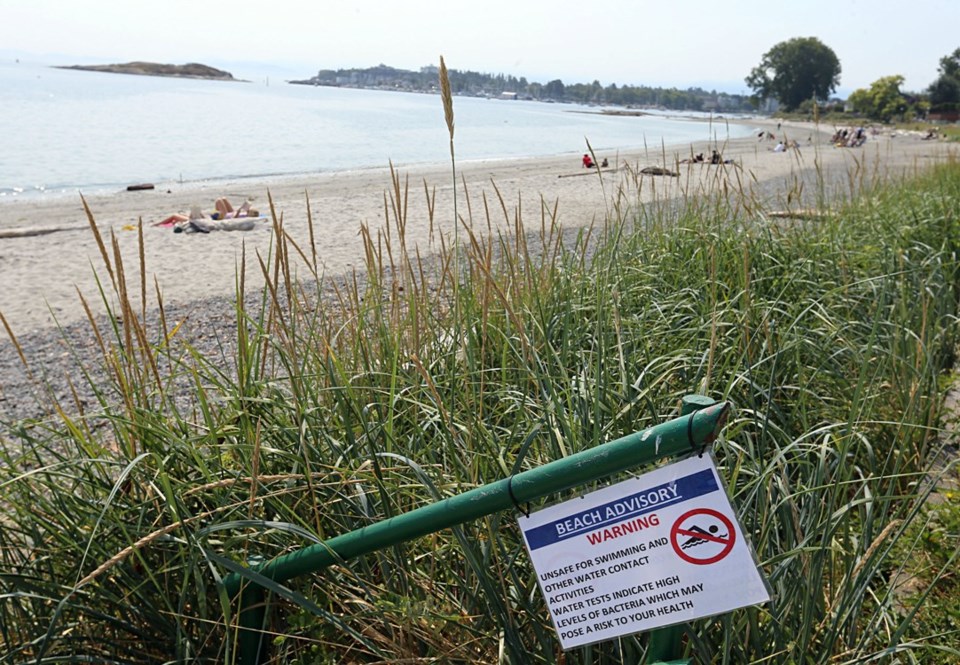An Island Health advisory warning against swimming at Willows Beach remains in place after high levels of bacteria were found in a water sample taken from the beach’s south end a week ago.
Water samples from the Oak Bay beach will be retested and reviewed this week by Island Health environmental health officers to determine if elevated levels of the fecal bacterium called enterococcus are still present.
Enterococci bacteria are present in the intestinal tract of warm-blooded animals, including humans, and indicate the presence of other bacteria that make people sick, Island Health said in a statement Monday. Elevated bacteria levels in the water increase the risk of illness to the public.
Testing of the Aug. 14 sample found an elevated enterococci bacteria count of 4,400 per 100 ml — the highest level recorded at Willows Beach since the Capital Regional District and Island Health began testing for it in 2014. The previous high was in June 2016 with 180 enterococci detected in a sample.
Island Health recommends beach advisories when enterococci levels exceed 70 per 100 ml.
On Friday, the District of Oak bay advised beachgoers not to go into the water until further notice, saying in a social media post: “The area is unsafe for swimming and other water contact activities.”
Mayor Kevin Murdoch said he didn’t know why the bacteria levels were so high at this one spot and not at other nearby beaches like Cadboro Bay or Gonzales.
“They’re retesting this week to get a better sense if this is continuing or if it’s gone,” Murdoch said. “If it continues, then that might be a point of looking for a source. It might be an anomaly.”
Elevated bacteria levels may be due to a variety of factors, including water temperatures, tides or waste water, Island Health said.
Despite the advisory, dozens of people were in the water Sunday.
Emiline Le Guen, who was pumping up a paddleboard, did not see the small laminated signs zip-tied to beach entry points warning visitors of a possible health risk. She said it should be the duty of public authorities to advertise the advisory with a proper sign.
“If you don’t see it, that means it’s too little. It should be a very big public information sign,” she said.
Many beachgoers who were in the water or about to enter the water were unaware of the advisory.
Maxine Leger, recently arrived from Gatineau, Que., said she saw the sign but didn’t know that the sample had tested more than 20 times over the threshold.
“You’d think they would kind of advertise it a little more,” Leger said. “Where I’m from, there would be things blocking the water.”
Jim Lyne said he fell ill after paddleboarding at Willows Beach on Tuesday afternoon.
He suspects that it was the water that caused his symptoms, which he said included diarrhea, fever, cold sweats and an increased heart rate.
He was still recuperating on Monday. “I can’t go to work, I can barely walk. My legs are like jelly. I’m afraid to eat, [as] it just makes my stomach cramp up even more,” he said.
Lyne said there were no signs at the beach when he was there.
“The beach was packed, people were in the water,” he said.




